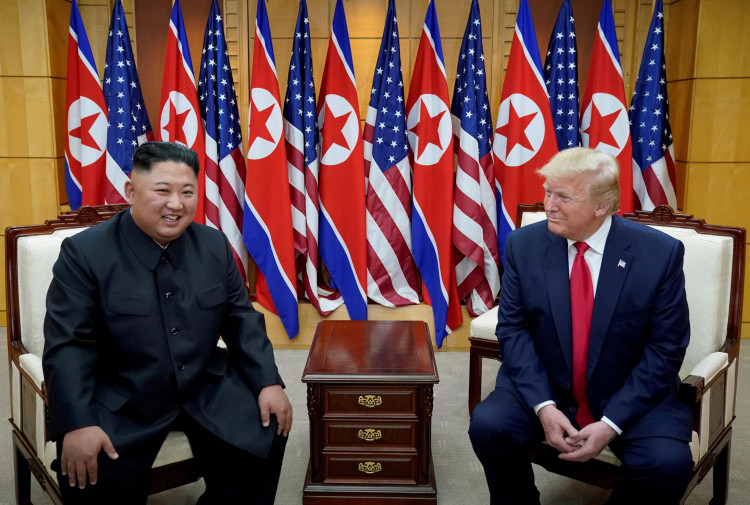Donald Trump's comments on North Korea and its leader Kim Jong-un shortly after his inauguration have drawn international scrutiny, particularly from South Korea, which swiftly pushed back against any suggestion that the U.S. might recognize North Korea as a nuclear power. During a media availability on Monday, Trump referred to Kim as a "nuclear power," sparking concern among allies and raising questions about the new administration's policy direction.
"I was very friendly with him," Trump said about Kim, adding, "He liked me, I liked him. We got along very well. Now, he is a nuclear power. But we got along." The remark, delivered casually, has been interpreted by some as a possible acknowledgment of North Korea's nuclear status-a notion firmly rejected by the international community, including South Korea.
South Korea's Foreign Ministry responded on Tuesday, emphasizing that North Korea's denuclearization remains a steadfast principle. A spokesperson reiterated the global consensus: "Under the Nuclear Non-Proliferation Treaty, North Korea can never achieve the status of a nuclear-weapon state." The ministry added that Seoul would closely collaborate with Washington and other partners to ensure the denuclearization of the Korean Peninsula.
The sensitivity of Trump's choice of words is underscored by its timing. His remarks came amid broader concerns over his administration's potential willingness to entertain a more flexible stance toward North Korea. During his campaign, Trump repeatedly highlighted his personal rapport with Kim, which included three high-profile summits between 2018 and 2019. While these meetings marked unprecedented engagement, they yielded no substantive progress toward denuclearization.
South Korean officials expressed unease over whether Trump's comments signal a shift from the longstanding U.S. policy of complete denuclearization in exchange for sanctions relief. The defense ministry noted that North Korea's denuclearization was essential for lasting peace, "not only on the Korean Peninsula but globally."
During his presidency, Trump frequently lauded his relationship with Kim, framing it as a major factor in reducing tensions. However, Kim's regime has continued to develop its nuclear program, and late last year, North Korea pledged to implement its "toughest anti-U.S. strategy" in the coming years. The juxtaposition of Trump's amicable remarks and North Korea's hostile stance has fueled skepticism about the effectiveness of Trump's engagement strategy.
Observers in Seoul remain cautious. Some analysts suggest that Trump's remarks might not reflect a deliberate policy change but rather a tendency to speak informally.
In the U.S., reactions to Trump's comments have been mixed. His allies argue that his unconventional diplomacy prevented an escalation of hostilities during his first term. Critics, however, view his remarks as potentially undermining international efforts to pressure Pyongyang into abandoning its nuclear ambitions.
Adding to the diplomatic complexity, Trump's new Secretary of Defense nominee, Pete Hegseth, also referred to North Korea as a "nuclear power" during his confirmation hearing last week. Hegseth's statement prompted swift denials from South Korea, with officials reiterating that North Korea's possession of nuclear weapons does not equate to its formal recognition as a nuclear-armed state.
The terminology surrounding North Korea's nuclear capabilities is particularly sensitive in South Korea, where concerns about Trump's approach to the peninsula's security are compounded by fears of a potential "small deal" with Kim. Such a deal might involve tacit acceptance of North Korea's nuclear arsenal in exchange for limited concessions, rather than complete denuclearization.






